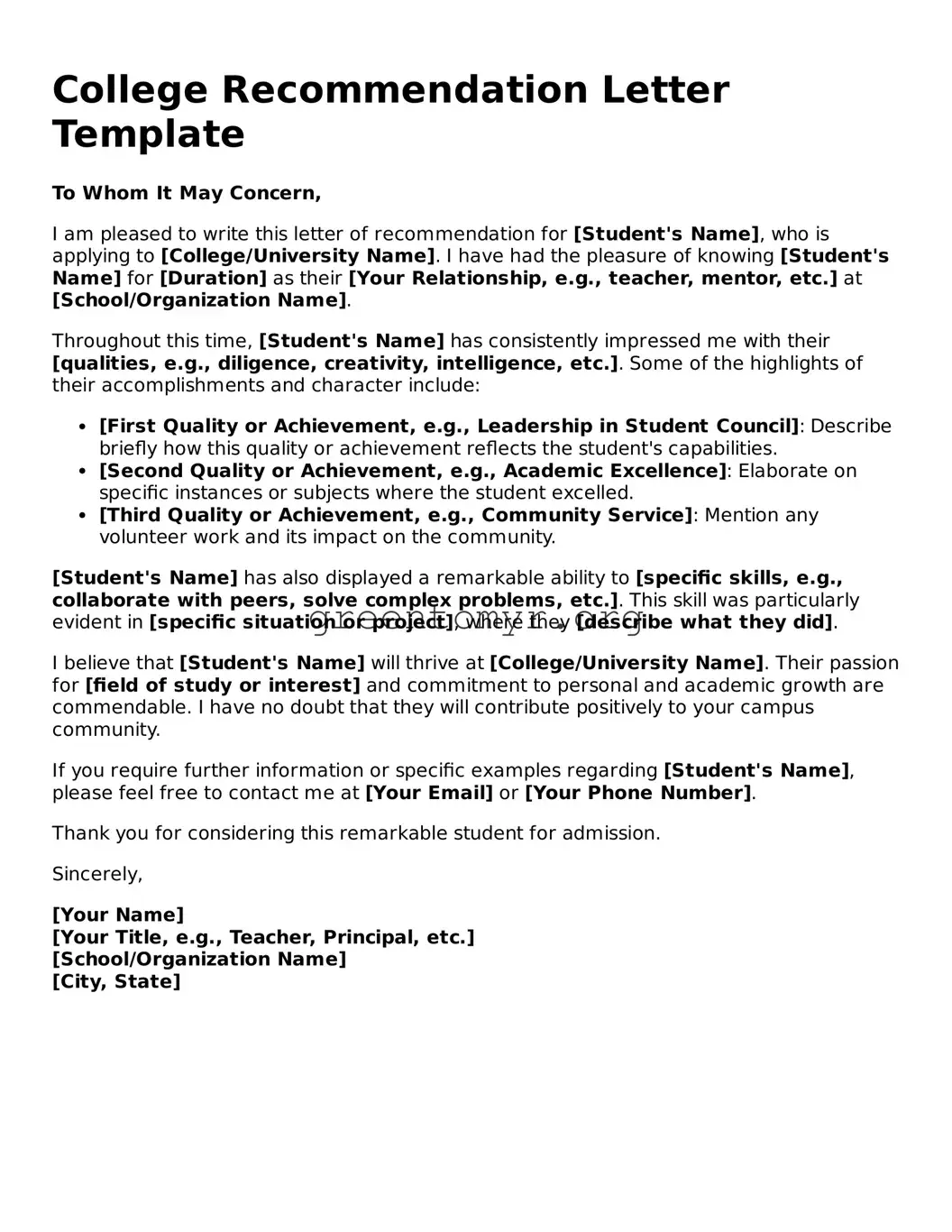College Recommendation Letter Template
To Whom It May Concern,
I am pleased to write this letter of recommendation for [Student's Name], who is applying to [College/University Name]. I have had the pleasure of knowing [Student's Name] for [Duration] as their [Your Relationship, e.g., teacher, mentor, etc.] at [School/Organization Name].
Throughout this time, [Student's Name] has consistently impressed me with their [qualities, e.g., diligence, creativity, intelligence, etc.]. Some of the highlights of their accomplishments and character include:
- [First Quality or Achievement, e.g., Leadership in Student Council]: Describe briefly how this quality or achievement reflects the student's capabilities.
- [Second Quality or Achievement, e.g., Academic Excellence]: Elaborate on specific instances or subjects where the student excelled.
- [Third Quality or Achievement, e.g., Community Service]: Mention any volunteer work and its impact on the community.
[Student's Name] has also displayed a remarkable ability to [specific skills, e.g., collaborate with peers, solve complex problems, etc.]. This skill was particularly evident in [specific situation or project], where they [describe what they did].
I believe that [Student's Name] will thrive at [College/University Name]. Their passion for [field of study or interest] and commitment to personal and academic growth are commendable. I have no doubt that they will contribute positively to your campus community.
If you require further information or specific examples regarding [Student's Name], please feel free to contact me at [Your Email] or [Your Phone Number].
Thank you for considering this remarkable student for admission.
Sincerely,
[Your Name]
[Your Title, e.g., Teacher, Principal, etc.]
[School/Organization Name]
[City, State]
